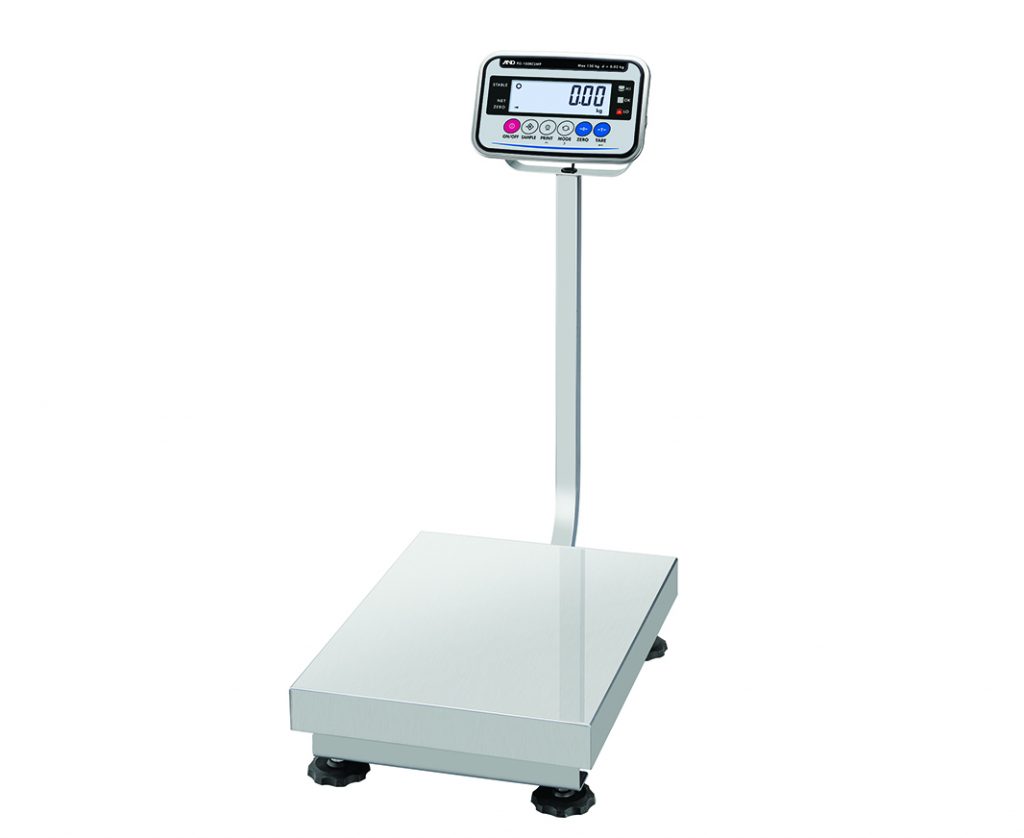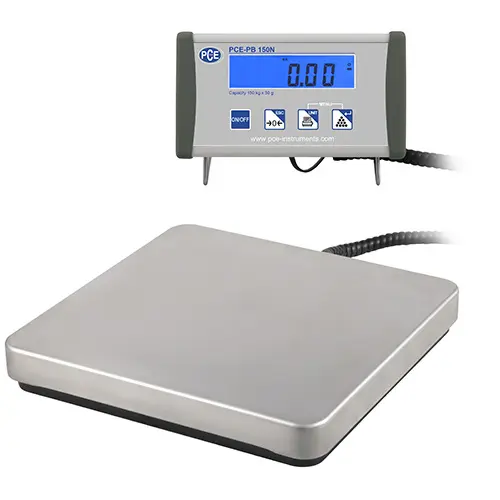
Leading Attributes to Look for in High-Quality Industrial Scales
In the realm of industrial operations, picking the right scale is vital for making certain efficiency and precision. Trick functions such as accuracy and precision, in addition to durability and build top quality, play a considerable function in determining the viability of a range for certain applications. Furthermore, factors to consider like lots ability, simplicity of use, and connectivity alternatives even more enhance operational efficiency. Comprehending these components is vital for making an informed decision, yet numerous organizations neglect essential elements that could affect their efficiency. A closer assessment of these attributes exposes insights that might change industrial evaluating practices.
Accuracy and Accuracy
Making certain the precision and precision of commercial ranges is paramount for effective procedures throughout various fields. Precise measurements are vital in markets such as production, logistics, and food processing, where even minor discrepancies can bring about considerable financial losses, endangered product quality, or regulatory non-compliance. Top notch commercial scales are designed to deliver reliable performance, utilizing advanced technology to guarantee exact weight analyses.
The calibration procedure is important in maintaining the precision of these scales. Regular calibration versus certified recommendation weights ensures that any type of drift in measurement is fixed, consequently maintaining compliance with industry requirements. Additionally, using high-resolution lots cells improves the scale's ability to discover minute weight modifications, better boosting its precision.

Toughness and Develop Quality
Resilience and build quality are important aspects that determine the durability and dependability of industrial ranges sought after settings. Industrial ranges are commonly subjected to rough problems, including direct exposure to dirt, wetness, and heavy tons. The materials made use of in their construction play a crucial role in ensuring they can stand up to these obstacles.
High-grade industrial scales usually include durable real estates made from materials such as stainless-steel or light weight aluminum, which not just provide structural honesty however additionally resist deterioration and wear. Furthermore, interest to detail in the design, such as reinforced edges and shock-absorbent feet, can enhance toughness and protect sensitive parts from damage.
Moreover, state-of-the-art elements, consisting of lots cells and digital components, add to the overall build high quality. These parts must be developed to tolerate temperature fluctuations and resonances generally located in industrial settings. Making certain appropriate access protection (IP rating) is also vital, as it indicates the scale's capability to stand up to dirt and fluid direct exposure.
Ultimately, picking industrial ranges with exceptional resilience and develop top quality will lead to a more reputable, long-lasting solution that fulfills the rigorous demands of different industrial applications.
Load Ability and Range
When choosing industrial ranges, comprehending their load ability and range is crucial for conference particular functional needs. Lots capacity refers to the maximum weight that a scale can precisely gauge, while the array shows the spectrum of weights the range can deal with effectively. It is crucial to choose a range that not only fulfills present requirements yet also fits prospective future demands.
Various industries have one-of-a-kind weight dimension demands. A manufacturing facility may call for ranges capable of weighing heavy machinery parts, while a lab could only need ranges for lighter materials. Choosing a scale with an appropriate lots ability makes sure precision and accuracy, preventing overloading that might lead to devices damages or imprecise readings.
A range that can gauge both heavy and light weights properly can boost operational efficiency, enabling for my link functional applications. Spending in scales with suitable lots ability and variety substantially adds to efficiency, compliance with industry requirements, and overall functional integrity.
Simplicity of Usage and Upkeep

Along with user-friendliness, convenience of upkeep is another crucial facet to consider. Scales that are made with available elements help with regular upkeep jobs such as cleansing, calibration, and battery replacement. A modular design can additionally enhance these procedures, enabling quick repair work and marginal downtime.
Additionally, the products used in the construction of commercial scales play a substantial function in upkeep. Scales made from long lasting, corrosion-resistant products are less complicated to tidy and less susceptible to damage, which expands their life expectancy and lowers overall operational expenses.
Regular upkeep routines, directed by the maker's suggestions, are necessary for guaranteeing ideal efficiency. By prioritizing ease of use and maintenance, organizations can ensure that their industrial ranges continue to be efficient, dependable, and efficient devices in their procedures. This brings about enhanced efficiency and a much more reliable process.
Connection and Assimilation Options
Integrating industrial ranges right into existing operational structures is significantly enhanced by robust connection choices. Premium industrial scales should supply multiple connection methods, including USB, Ethernet, and wireless choices such as Wi-Fi or Bluetooth. These features promote seamless data transfer to main data sources, ERP systems, or cloud platforms, making it possible for real-time surveillance and coverage.
Additionally, progressed assimilation alternatives permit for compatibility with existing equipment, such as printers or barcode scanners, streamlining processes and boosting process efficiency. Ranges that support industry-standard methods, such as Modbus or RS-232, can conveniently interact with different devices and systems, making sure a cohesive functional setting.
An additional necessary aspect is the capability to incorporate with software application solutions that examine and picture information - Industrial Scales. Scales equipped with APIs or software program growth packages (SDKs) offer businesses the go to website adaptability to tailor functionalities tailored to learn the facts here now their specific requirements
Finally, considering future scalability is critical; choosing ranges that can adapt to evolving technical innovations makes sure long-term worth and minimizes the need for pricey substitutes. In summary, reviewing connection and assimilation choices is important when choosing top quality industrial scales that will enhance functional efficiency and information management.
Conclusion
In final thought, choosing high-grade commercial ranges requires careful consideration of numerous important features. Industrial Scales. Focusing on these attributes inevitably leads to improved productivity and lasting value in commercial applications, strengthening the relevance of educated decision-making in range choice.
In the world of industrial procedures, choosing the right range is essential for guaranteeing efficiency and accuracy.Guaranteeing the precision and accuracy of industrial ranges is extremely important for efficient procedures across numerous fields. Tons ability refers to the optimum weight that a scale can accurately determine, while the variety shows the spectrum of weights the range can deal with properly. A production center may call for scales capable of considering heavy equipment components, while a laboratory may only require scales for lighter products. By focusing on ease of usage and maintenance, organizations can guarantee that their commercial scales stay efficient, trustworthy, and reliable tools in their operations.